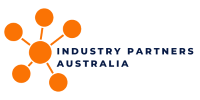
Lean Simulation
Training Provider: Efficiency Works
Delivery Method: Public, On-site
What Will I learn:
As a minimum, participants learn the basic principles of the following Lean tools and techniques:
- Value Stream Mapping – provides participants with a basic understanding of process analysis and describes value-adding activity, identifies waste and identifies business improvement opportunities.
- 7 Wastes – helps identify Value Adding and Non-Value Adding process activities.
- DMAIC/Root Cause Analysis/Problem Solving – (Define, Measure, Analyse, Improve, Control). Provides a structured and repeatable way to solve problems and sustain the outcomes.
- Visual Performance Management – shows participants a communication tool that helps to visualise workflow, monitor performance and identify and solve problems.
- 5S – demonstrates how to improve the workplace by simplifying, organising and sustaining a productive work environment.
- Just In Time – helps participants understand the benefits of providing products and services only as required by customer demand.
- Leadership & Teamwork – demonstrates how leadership and working as a team has a direct impact on productivity, team morale and workplace culture.
- Theory of Constraints – provides a basic understanding of a methodology for identifying the most important factor that stands in the way of achieving the group’s goals.
- Performance Measurement – develops an understanding of how to collect, analyse and report information and the value of measuring performance.
What Outcomes will the training provide?
The Lean Simulation workshop delivers the following outcomes for participants and the organisation:
- A basic understanding of the principles, tools and techniques of Lean and a valuable first step towards further training.
- Business improvement knowledge and skills that can realise tangible benefits in the workplace.
- A heightened awareness of waste and how customer value is created.
- A positive impact on workplace behaviours and culture.
- A catalyst for a program of continuous improvement.
Who will benefit from attending this training?
The learnings are relevant and applicable to all types of organisations and to all levels of management, administration and delivery.
Even though it is designed to provide an entry-level understanding of Lean, the workshop provides a cogent refresher for business improvement specialists and other staff who have had previous exposure to the Lean tools and techniques.
The workshop is suitable for:
- Executives and managers
- Supervisors
- Frontline staff
- Administration and support staff
What is the duration of this training?
This is a full-day workshop.

Training Overview
What will I learn?
- The Agile Mindset and Principles: The Agile manifesto and mindset is where it all began in 2001 and soon grew into the practices behind one of the fastest-growing project management and product development methodologies of the new millennium. Here, you will explore this and its contrast to other project approaches, including the 12 clarifying principles.
- The Agile Core Practices: These are the core Agile practices from the Agile Practice Guide and are a great way to see if a team is really Agile, even when they may call themselves something different. This is direct from the Project Management Institute and Agile Alliance.
- Agile and Lean Frameworks: These are the Agile and Lean frameworks you will come across in your Agile career, ranging from popular and highly used team frameworks through to program and enterprise level frameworks.
- Delivering in an Agile Environment: This section describes Agile delivery and using Agile to implement an Agile way of work in your organisation.
- Bonus Content: Learn through real-life scenarios and a bonus Agile Project Charter template you can use immediately.
What outcomes will the training provide?
This training program delivers the following outcomes for participants and the organisation:
- Plan and prioritise own work tasks, including monitoring and obtaining feedback on personal work performance.
- Lead teams and individuals by modelling high standards of conduct to reflect the organisation’s standards and values.
- Facilitate and apply communication strategies in the workplace.
- Determine individual and team development needs and facilitate the development of the workgroup.
- Effectively lead and facilitate a team in a workplace.
- Use leadership to promote team cohesion including motivating, mentoring, coaching, and developing the team and forming the bridge between the management of the organisation and team members.
- Implement operational plans by planning and acquiring resources, monitoring, and adjusting operational performance and providing reports on performance, as required.
- Lead and manage continuous improvement systems and processes with a particular emphasis on the development of systems and the analysis of information to monitor and adjust performance strategies, and to manage opportunities for further improvements.
- Establish and develop a professional mentoring relationship with an individual in the workplace.
- Identify and implement ways of promoting innovation within team environments in the workplace.
- Implement and monitor an organisation’s work health and safety (WHS) policies, procedures and programs in the relevant work area in order to meet legislative requirements.
- Identify business risks and to apply established risk management processes to a defined area of operations that are within the responsibilities and obligations of the role.
Who will benefit from this training?
- Executive Managers – wanting to understand how Agile can provide a competitive advantage
- Senior Managers – providing oversight of project teams, considering Agile as a capability, or acting as Project Sponsors, Product Owners or Scrum Masters
- CI / BI Managers – seeking unique approaches to product and service development
- Project Managers – looking to expand their skill sets and knowledge
- Business and process analysts
- IT staff
- L&D staff
- Team members participating in or supporting Agile projects
- All employees who want a basic understanding of Agile, the language, the concepts, the opportunity.
What is the duration of this training?
3 - 4 hrs
![]()
.png?width=190&name=IPA%20Logo%20Transparent%20(Hi-Res).png)


